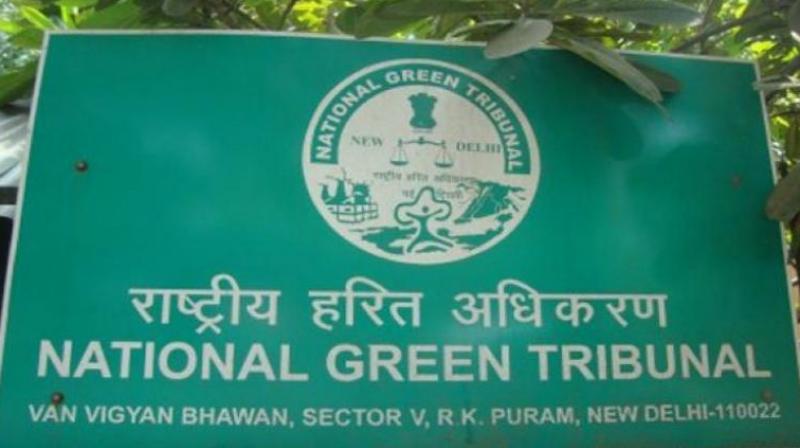Checking illegal mining in polluted stretches of main rivers
Yet another NGT directive being taken casually by Govt
Mohinder Verma
JAMMU, Apr 14: Adopting unresponsive approach towards another important directive of the National Green Tribunal (NGT), the Special Environment Surveillance Task Force has failed to start checking illegal mining in the polluted stretches of the main rivers in Jammu and Kashmir. Shockingly, officers, who have been shown as members of this Task Force in the official order, have expressed ignorance about such an initiative on the part of the State Government.
In Original Application No.673/2018 regarding rejuvenation of polluted river stretches, the Principal Bench of National Green Tribunal headed by its Chairperson Justice Adarsh Kumar Goel, in its order dated September 20, 2018, had laid stress on checking illegal mining in the identified polluted stretches of the main rivers by the concerned States. In this regard, the Tribunal had asked for constitution of Special Environment Surveillance Task Force by all the States.
However, the directive of the NGT received attention of the State Government in the month of February this year and vide Government Order No.224-GAD dated February 14, 2019, the Commissioner/Secretary General Administration Department constituted Special Environment Surveillance Task Force.
Additional District Magistrate/Additional Deputy Commissioner concerned would be the Chairman of the Task Force while as Deputy Superintendent of Police (to be nominated by the Senior Superintendent of Police/Superintendent of Police concerned), District Officer of the State Pollution Control Board and one person to be nominated by District Judge in his capacity as Chairman of Legal Services Authority would be members of the Task Force, the Commissioner/Secretary General Administration Department mentioned in the order.
However, despite lapse of exactly two months the Special Environment Surveillance Task Force has failed to start checking illegal mining in the identified polluted stretches of the main rivers in the State, official sources told EXCELSIOR.
What to talk of initiating steps for surveillance even officers have not been nominated in certain districts where rivers have polluted stretches. In other districts the officers nominated as members of the Task Force are completely ignorant about such an initiative on the part of the State Government in compliance to the directives of the National Green Tribunal.
“We are not aware of Special Environment Surveillance Task Force”, said several District Officers of the Pollution Control Board when contacted to ascertain the steps taken on ground to check illegal mining in polluted river stretches. They also fanned ignorance about any official meeting called by the respective heads of the Task Force.
“The non-serious approach towards checking illegal mining in the polluted stretches of rivers is notwithstanding the fact that orders of National Green Tribunal are binding as a decree of court and non-compliance is actionable by way of punitive action including prosecution in terms of the National Green Tribunal Act, 2010”, sources said, adding “by not initiating steps to check illegal mining, the concerned authorities are not only undermining the authority of the National Green Tribunal but also showing non-serious approach towards environment degradation”.
According to the survey conducted by the State Pollution Control Board, River Devika has five kilometres long polluted stretch from Guru Ravi Dass Temple to Nainsu at Udhampur, Banganga has three kilometres long polluted stretch from Pony Shed to Bathing Ghat, River Tawi has five kilometres polluted stretch from Surajpur to Belicharana, River Basantar has five kilometres polluted stretch from Samba to Chak Manga Rakwal adjoining Industrial Growth Centre Samba and River Chenab has 12 kilometres polluted stretch from Jal Patan (Jio Pota) to Pargwal.
In Kashmir province, Chunt Kol River has five kilometres polluted stretch from Maulana Azad Bridge to Kanikadal, Gawkadal River has two kilometres polluted stretch from Gawkadal Bridge to Nowhata, River Jhelum has 40 kilometres long polluted stretch from Chattabal Weir to Anantnag and Sindh River has 3.7 kilometres long polluted stretch along Duderhama in Ganderbal.
Besides checking illegal mining, the NGT directives are also aimed at improving the water quality of these polluted river stretches for which action plan has already been submitted to the concerned authorities in Government of India by the State Government.


